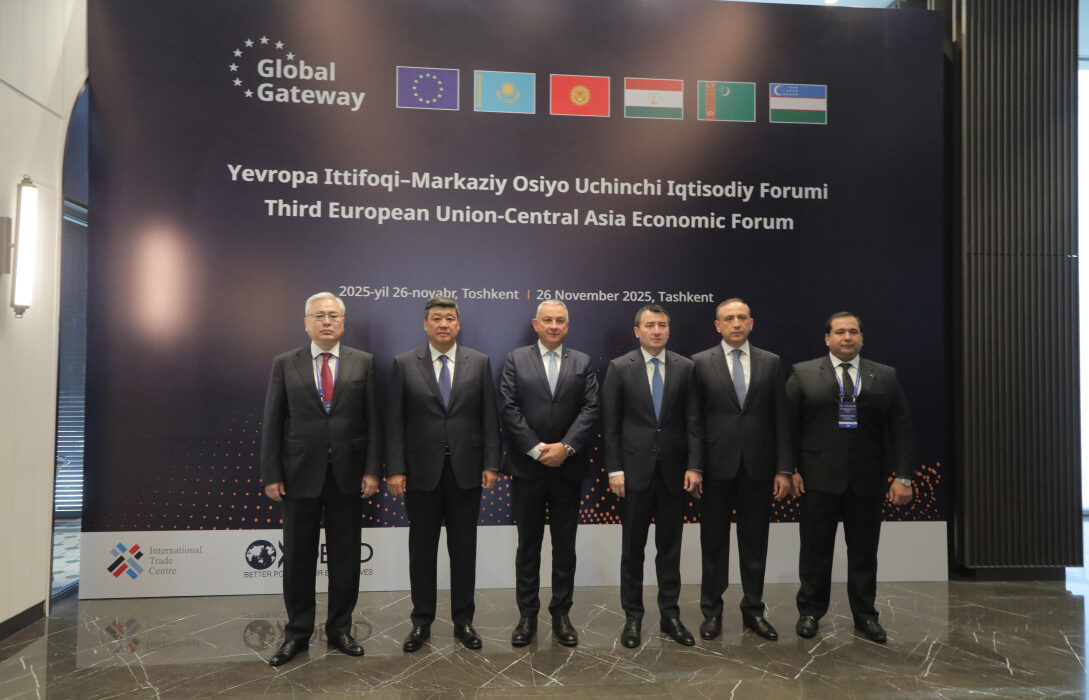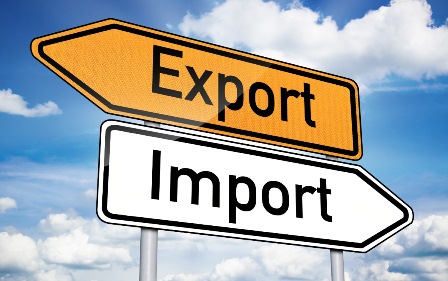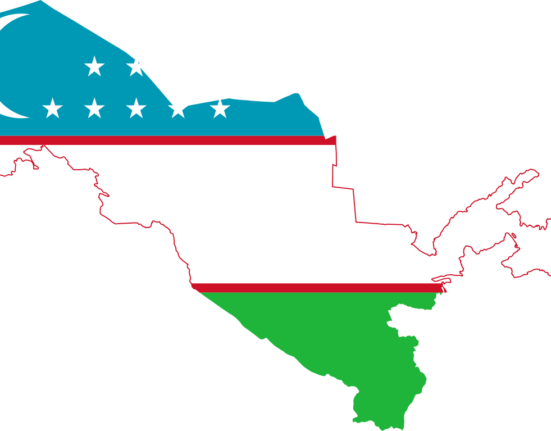The 3rd EU–Central Asia Economic Forum demonstrated the growing momentum of the partnership between the European Union and the countries of Central Asia. Coming after the recent first-ever EU–Central Asia Summit in Samarkand and the EU–Central Asia Ministerial meeting in Ashgabat, the Forum in Tashkent on November 26 became the next major milestone in a year that has brought EU–Central Asia cooperation to a new strategic level, according to the Delegation of the European Union to Uzbekistan.
Leaders from both regions met to deepen economic cooperation, promote strategic investment, and foster sustainable growth. The Forum served as a key platform to turn the ambitions of the EU’s Global Gateway strategy into concrete action. A series of high-impact programs were signed, supporting public finance reforms, responsible resource development, border management, and regional environmental restoration.
The Forum also confirmed the growing alignment between EU and Central Asian priorities, particularly in areas such as critical raw materials, digital transformation, energy infrastructure and governance reforms. The deliverables agreed in Tashkent mark a significant step forward in building mutually beneficial partnerships and advancing long-term stability and prosperity across the region.
European Commissioner for International Partnerships Jozef Síkela said: “The year 2025 has shown how much Central Asia and the EU can deliver together under our Global Gateway strategy. We are moving from potential to implementation – in digital connectivity, clean energy, and modern transport. A clear example is our cooperation on critical raw materials. Today I announced three new CRM-related contracts that will strengthen governance, raise standards, and remove key barriers for European investors. Through these initiatives, we are boosting sustainable growth, strengthening our resilience, and opening new opportunities in both our regions.”
During the Forum, European Commissioner Síkela announced the following bilateral and regional agreements:
DATA4CRM – Enhancing Geodata Management
A flagship Team Europe initiative with total budget of EUR 7.5 million designed to modernise geodata systems, improve access to geological information, and unlock investment opportunities in the critical raw materials sector. This project is signed between the EU (EUR 5M) and the Ministry for Foreign Affairs of Finland (EUR 2.5M) and responds to a key challenge faced by investors seeking reliable and modern geological data.
SECURE CRM – Enhancing CRM Value Chains in Central Asia
This project strengthens responsible and transparent supply chains by aligning CRM governance with United Nations Framework Classification for Resources (UNFC) standards with total budget of EUR 3 million. It is signed by the EU and UNODC/UNECE and will bolster the region’s ability to meet growing global demand while ensuring accountability, sustainability, and cross-border cooperation.
GROW CRM – Expanding CRM Activities in Central Asia
A targeted partnership with the EBRD to develop new CRM projects with total budget of EUR 3 million, supports feasibility studies, and improve regulatory frameworks—laying the foundation for diversified growth and responsible resource management.
Aral Sea Project
The ARAL SEA afforestation program for the restoration of degraded lands in the Lower Aral Sea Basin with focus on environmental rehabilitation, socio-economic revitalization and sustainable land use. The EU contributes EUR 8.8 million. EIB and AFD will contribute with loans of EUR 20 million each.
Border Management Programme in Central Asia (BOMCA) and Central Asia Drug Action Programme (CADAP)
BOMCA and CADAP have been active since 2003. BOMCA, with EUR 12 million, focuses on security and living conditions of border communities, a key driver of conflict. CADAP, with a vastly increased budget of EUR 18 million, will continue its current work on drug demand reduction, but also add a new strand of work on fighting drug trafficking.




